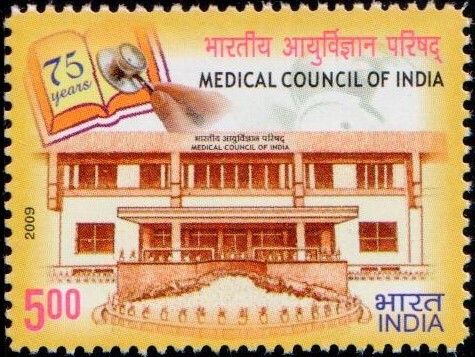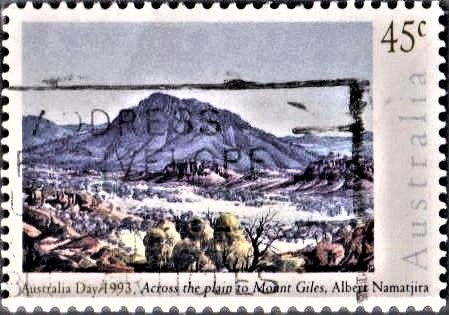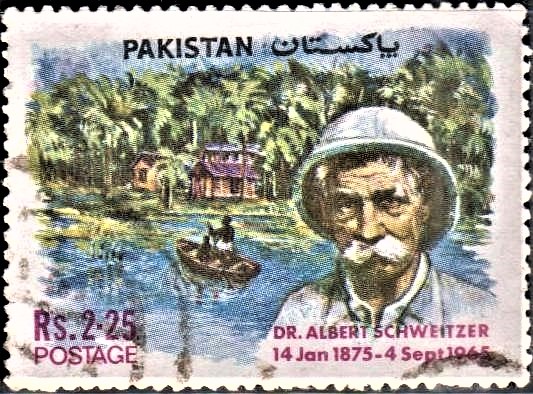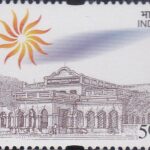
Sir Henry Gidney
A commemorative postage stamp on Henry Albert John Gidney, an Anglo-Indian community leader from British India, founder of the All India Anglo-Indian Association :
 Issued by India
Issued by India
Issued on May 9, 1992
Description of Designs : The stamp and first day cover depict the varied professions of Anglo-Indians, alongside a portrait of Henry Gidney. Paul Mantosh, former M.P. coordinated the collection of material for the design of the stamp as well as this text. The designs have been prepared by Sydney Kitson and art work by Ahmed Ali. The cancellation has been prepared by Alka Sharma.
Type : Stamp, Mint Condition
Colour : Two Colour
Denomination : 100 Paise
Overall size : 3.91 x 2.90 cms.
Printing size : 3.55 x 2.54 cms.
Perforation : 13 x 13
Paper : Indigenous Un W/M Gravure Coated Gummed Stamp Paper
Number Printed : 6,00,000
Number per issue sheet : 35
Printing Process : Photogravure
Printed : India Security Press
Name : Henry Albert John Gidney
Born on Jul 9, 1873 at Igatpuri, Maharashtra, India
Died on May 5, 1942 at Igatpuri, Maharashtra, India
About :
- Henry Albert John Gidney was born on 9th July 1873 at Igatpuri, Maharashtra. He had a brilliant career. At 16 he joined the Calcutta Medical College and passed out in First Class, First with gold medals. At 37, he was already a FRCS, DPH, MRCP, D.O., a research scholar and Lecturer in Ophthalmology at Oxford, England, and a Fellow of the Royal Society. Gidney joined the Indian Army’s Medical Service, but resigned after the First World War as a Lieutenant Colonel and thereafter went into private practice. During his medical career, he carried out some 30,000 eye operations.
- Gidney was concerned with racial discrimination against members of the Anglo-Indian community by the British Raj, of which he himself was a victim. He carried out an unrelenting struggle for his community, soon emerging as their leader and President of the Anglo-Indian and Domiciled European Association. Nominated a member of the Central Legislative Assembly (forerunner of modern India’s Parliament) in 1921, his main concern was for bettering the lot of Anglo-Indians and bringing unity within the community. His forceful representations before the Simon Commission (1928-29) and other bodies, as also being a member of all the three Round Table Conferences (1930-32), resulted in Anglo-Indians having increased political representation, educational safeguards and job reservations. He was knighted in 1931.
- Gidney had his lighter side also. He was a flamboyant and charming gentleman, perhaps the ace raconteur not only in the Legislature but of Delhi’s society. With his wit and humour he used to regale the Legislature.
- As India moved towards independence, Gidney told his small and valiant community, “…..You are first and last, sons of India…..”
- Gidney was one of the greatest leaders the Anglo-Indian community has produced. He passed away in New Delhi on 5th May, 1942.
- Text Courtesy: Melvyn Brown on the basis of material from the Anthropological Survey of India, the National Library, Calcutta, Frank Anthony, Joss Fernandez, Evelyn Abel and Gloria Jean Moore.







